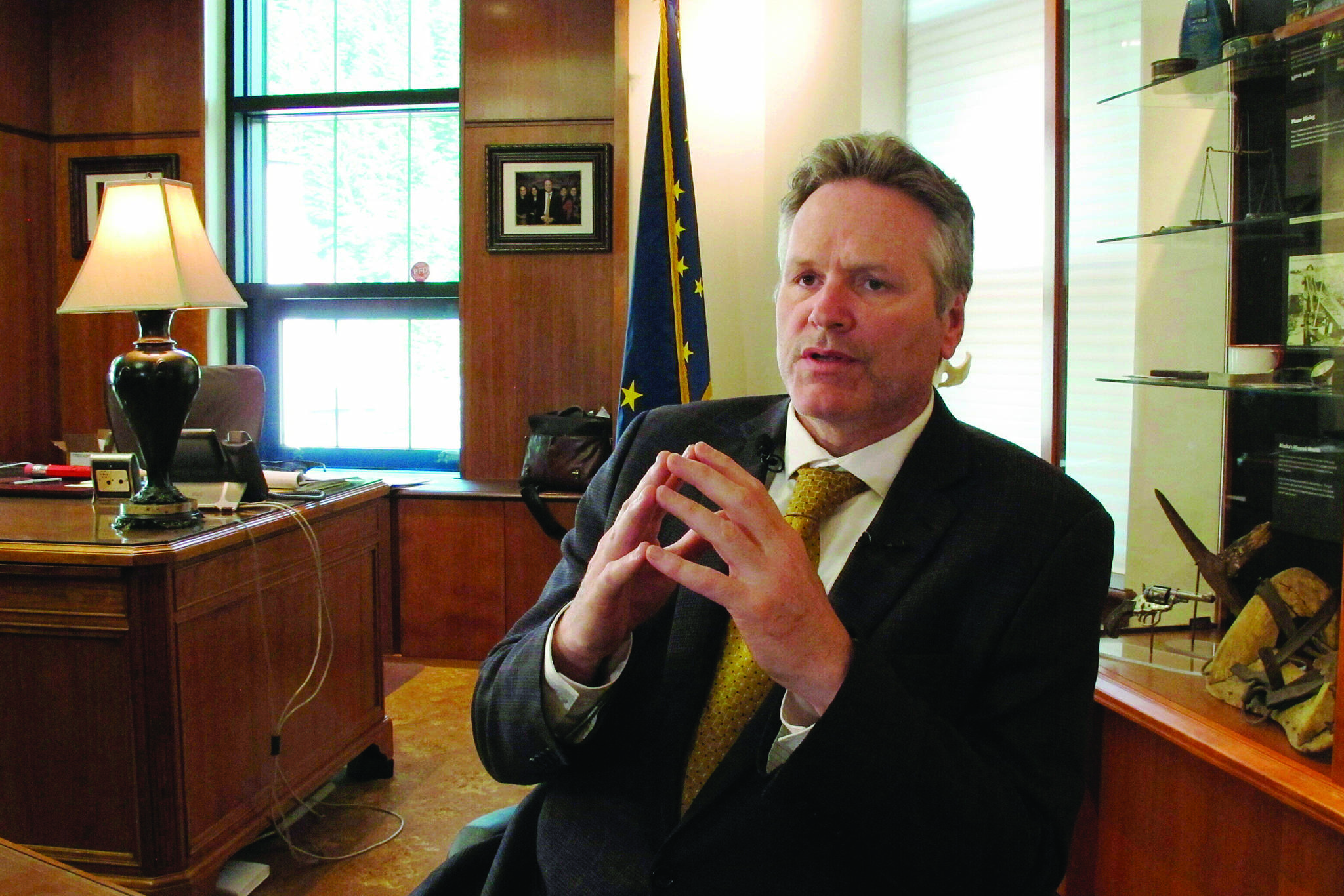In a matter of weeks, our Legislature will begin deliberations on our state’s budget for the next fiscal year. There is no doubt we have challenges. The reserve funds that once held over $16 billion lie nearly empty. Unlike the federal government, Alaska possesses no cash printing machines. Any solution to our fiscal crisis must come from within the revenues we generate and the current programs and services on which we spend money.
However, we have much to look forward to as well. According to economists, our three-year recession is finally at an end. Our private sector economy is leading the way with a 4.1% increase in gross domestic product — the third-highest in the nation. Unemployment remains at historic lows, and 1,600 new jobs have been created over the past year. Perhaps most telling, hundreds of these jobs are in the construction industry.
On the North Slope, a renaissance is underway. Private investment has increased by $1.1 billion, and last year was the region’s busiest in over a decade. Oil industry wages also grew at 7% — nearly double the national average. In fact, wages all across Alaska increased by $355 million during the first half of 2018.
Economic growth will remain a key part of our recovery in the years to come. That’s why I formed the Alaska Development Team. Tasked with identifying and recruiting businesses and investment to Alaska that will result in more jobs here in our state, they are currently working with Anchorage Airport staff to develop over $500 million in proposed projects that will capitalize on recent air cargo growth. This includes 1.4 million square feet of new warehouse space that will create 1,000 construction jobs next summer.
Many of our future economic opportunities will complement our nation’s push for a cleaner environment. Our state is rich in resources like zinc and rare earth metals — critical components in the batteries and electronics of most electric vehicles. In fact, Tesla is already active in Alaska with a testing facility in Delta Junction and a battery energy storage project in Homer.
But, economic growth alone will not solve our budget issues in the short term. Shared sacrifice will be required as we regain our fiscal footing. The proposed budget I have submitted to the Legislature for their review and discussion acknowledges this reality while also protecting the priorities of Alaskans — the same priorities that I promised to fight for when I was elected last November.
That means continuing our path toward a safer Alaska. After passing landmark sexual assault legislation and hiring more troopers than any other year in the past decade, my proposed budget funds an additional 15 troopers and three prosecutors. The Department of Corrections budget will see an increase of 7%, and the judiciary will see extra funding for public defenders and guardians.
It also means fully funding K-12 education. Having spent decades as both a teacher and school administrator, it pains me to see our state consistently ranked as one of the worst for K-12 education. Funding, however, is just one piece of the education puzzle — our delivery of education services must be improved.
I recently met with federal officials to discuss how we can move forward with tribal compacting in education as well as ideas to boost reading performance. I believe that our children must be reading at grade level by the third grade and proficient in algebra by the eighth grade. We must achieve these milestones to ensure our children can pursue any career they set their sights on. We must insist proficiency in reading and algebra be a moral imperative for Alaska’s children.
Finally, it means protecting the Permanent Fund as well as the PFD. My budget calls for a full Permanent Fund dividend plus complete payment for last year’s partial dividend. Until Alaskans decide otherwise, I am committed to honoring the statutes that calculate the PFD.
Alaskans have important decisions to make in the days ahead. The upcoming year represents the final time we can rely on budget reserves to make ends meet, meaning hard decisions must be made. To that end, I will be back in the air beginning this month, visiting with communities in every corner of our state, and gathering more of your critical input as to what Alaska should like look going forward. In order to build that Alaska together, we will need your thoughts on questions such as:
Do we want to continue to grow government with little or no controls on spending, or do we want a spending limit?
How do we want to pay for government going forward if oil revenue is not enough to pay for the government we have?
Which programs and services do we wish to preserve?
What should the PFD look like going forward?
Are we committed to developing our resources to provide jobs, wealth, and revenue for Alaskans or not?
What sacrifices are we as Alaskans willing to make in order to leave a better Alaska for our children and grandchildren?
In preparation for these conversations, my staff has compiled and published extensive budget data. This includes an unbiased set of scenarios that could be used to balance our budget. I truly hope you spend some time reviewing this information ahead of these discussions.
Most importantly, I urge Alaskans to not lose sight of the big picture. Our present budget woes are not simply a math exercise. The long-term solutions will come from people like you — Alaskans with ingenious ideas and a commitment to delivering better government services with less resources. Alaskans who understand that the decisions we make today will shape the world we leave our children.
I’m confident that, together, we will secure for them a safer and more prosperous Alaska.
Gov. Mike Dunleavy is the 12th governor of Alaska.
• Gov. Mike Dunleavy is the 12th governor of Alaska.


